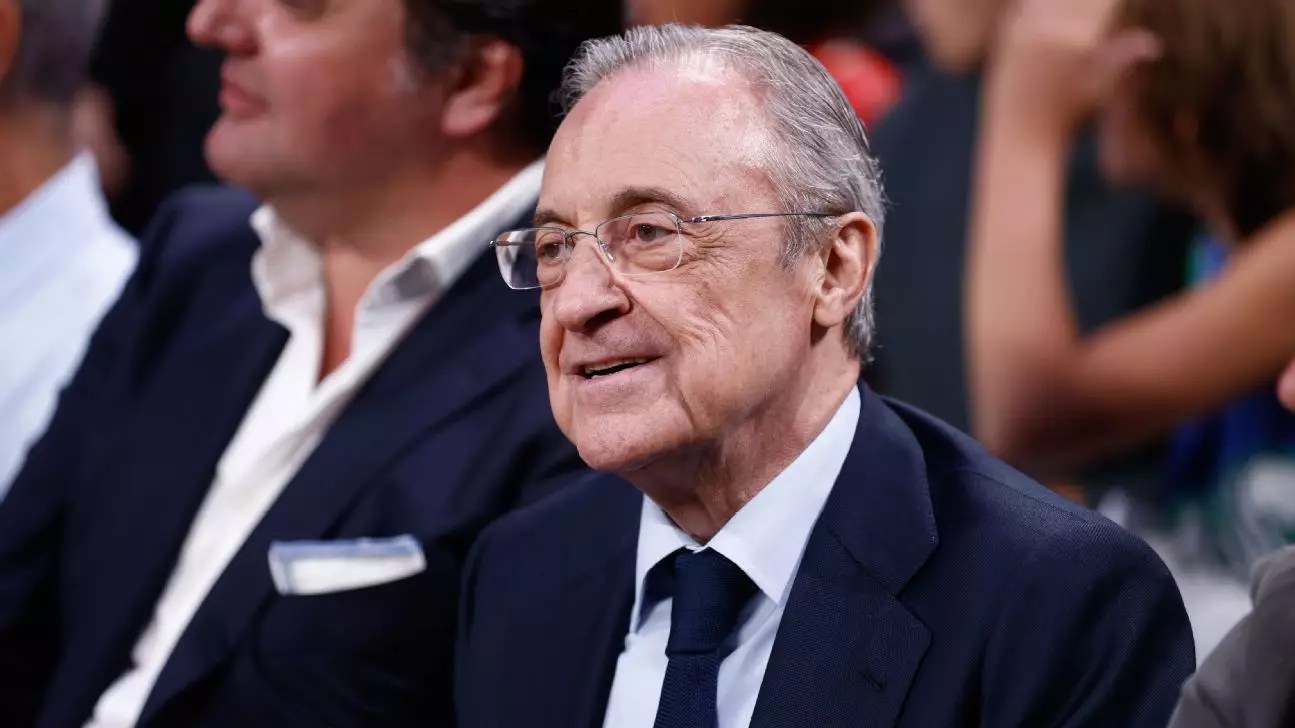The recent Ballon d’Or ceremony has ignited tensions between football clubs and the voting journalists who determine the award’s recipients. In particular, Real Madrid’s president, Florentino Pérez, found himself at the center of this heated discourse after criticizing a group of journalists from various countries – including Namibia – for their voting decisions that led to Manchester City midfielder Rodri winning the prestigious prize over Vinícius Júnior. This incident highlights not only football’s competitive nature but also the intricate interplay between global recognition and the subjective opinions of individual journalists.
Pérez’s remarks underscore a controversial sentiment within the football community: the question of who gets to decide the best player in the world. His assertion that votes from less prominent footballing nations carry little weight reveals a deeper bias against non-European perspectives in a sport that increasingly professes inclusivity. The snubbing of Vinícius, widely considered a standout performer for Real Madrid, points to a complicated intersection of individual merit and collective sentiments from voting bodies.
Vinícius was a clear contender for the 2024 Ballon d’Or; his invaluable contributions helped Real Madrid secure both the La Liga and Champions League titles. It raises important questions regarding a player’s achievements and how they are perceived across different nations and cultures. While his accomplishments in Europe were lauded, his underwhelming showing in Brazil’s Copa América intensified the debate.
The disappointment echoed through the Madrid camp upon realizing that Vinícius would not claim the award. For Pérez, the emphasis shifted to the need for a re-evaluation of the voting process, suggesting a preference for a structure that favors renowned football authority figures over a broader, more diverse voting bloc. As journalists like Sheefeni Nikodemus have pointed out, this notion not only disregards the contributions of individuals from emerging footballing nations but also highlights a discriminatory hierarchy within the global football ecosystem.
The exchange between Pérez and Nikodemus speaks volumes about the entrenched views regarding validation in football. On a platform like Cadena SER’s El Larguero, Nikodemus articulated his grievances towards Pérez’s comments, emphasizing that the quality of votes shouldn’t be undermined simply because they come from nations with less prominence in the football world. He provocatively questioned Pérez’s stance by suggesting that if a journalist from a leading footballing nation disagreed with the voting outcome, what justification would there be for disregarding their opinion?
This interaction shines a light on the biases that often accompany leadership in sports. The emphasis on well-known figures within the realm of football journalism creates an environment where the contributions of lesser-known journalists are undervalued, even though the profession’s core ideal is rooted in the fair assessment of talent from all corners of the globe. By dismissing the votes from journalists of less recognized countries, Pérez inadvertently raises the possibility of stifling diverse voices during significant global events.
Beyond the Controversy: The Need for Reform
In light of this controversy, the need for a comprehensive reassessment of the Ballon d’Or voting process becomes imperative. The current system relies too heavily on a panel of journalists who may lack a nuanced understanding of players outside of their own regions. This insular focus inevitably marginalizes deserving talents from nations that do not regularly feature in the elite discussions of international football.
With football becoming more globalized, ensuring the voices from various footballing backgrounds aren’t just heard but valued is paramount. A more inclusive voting body, perhaps consisting of a global panel that reflects both traditional powerhouse countries and emerging football nations, could provide a more well-rounded assessment of player performances year after year.
The current uproar following the 2024 Ballon d’Or results is a critical reminder of the evolving face of football and the narratives we choose to amplify. As discourse continues between prominent figures like Florentino Pérez and journalists like Sheefeni Nikodemus, it becomes apparent that the path forward requires an emphasis on inclusivity and a reevaluation of the structures we have in place. By fostering a more equitable environment for all participants, we can truly celebrate the global nature of football and honor talent from every corner of the world.


Leave a Reply